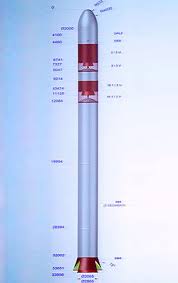Small Satellite Launch Vehicle:

The Indian Space Research Organisation (ISRO) chairman has mentioned the launch of an “SSLV-D1 Micro SAT in April 2022”.
- The SSLV (Small Satellite Launch Vehicle) aims to cater to the market for the launch of small satellites into Earth’s low orbits that has emerged in recent years to cater to the needs of developing countries, universities for small satellites, and private corporations.
- It is the smallest vehicle weighing only 110-tonne. It will take only 72 hours to integrate, unlike the 70 days taken now for a launch vehicle.
- It can carry satellites weighing up to 500 kg to a low earth orbit while the tried and tested Polar Satellite Launch Vehicle (PSLV) can launch satellites weighing in the range of 1000 kg.
- SSLV is a three-stage all solid vehicle and has a capability to launch up to 500 kg satellite mass into 500 km Low Earth Orbit (LEO) and 300 kg to Sun Synchronous Orbit (SSO).
- It is perfectly suited for launching multiple microsatellites at a time and supports multiple orbital drop-offs.
- The key features of SSLV are low cost, with low turn-around time, flexibility in accommodating multiple satellites, launch on demand feasibility, minimal launch infrastructure requirements, etc.
- The Government has sanctioned a total cost of Rs. 169 Crores for the development project including the development & qualification of the vehicle systems and the flight demonstration through three development flights (SSLV-D1, SSLV-D2 & SSLV-D3).
- ISRO’s new chairman Dr Somanath is credited with designing and developing the SSLV during his tenure as director of the Vikram Sarabhai Space Centre in Thiruvananthapuram since 2018.
- The maiden flight of the SSLV was scheduled to launch in July 2019 but that has since been delayed due to setbacks from Covid-19 and other issues.




